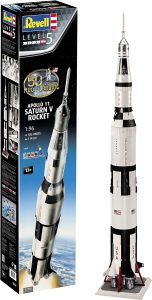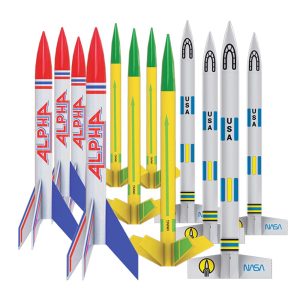Imagine soaring to new heights with your model rocket, only to be grounded by concerns about municipal codes. As a model rocket enthusiast, you're likely no stranger to the thrill of launching your creations into the sky. But have you ever stopped to think about whether your model rockets are considered projectiles under local laws? In this comprehensive guide, we'll delve into the world of municipal codes and explore what they mean for model rocketry.
Quick Links to Useful Sections
- Understanding Municipal Codes and Projectiles
- Are Model Rockets Considered Projectiles?
- Key Factors Influencing Municipal Code Classification
- Understanding Local Regulations and Ordinances
- Best Practices for Safe and Responsible Model Rocketry
- Conclusion
- Frequently Asked Questions
- Resources and community Support: Your Next Steps
Understanding Municipal Codes and Projectiles
Before we dive into the specifics of model rockets, it's essential to understand the basics of municipal codes and projectiles. Municipal codes are local laws that govern various aspects of life within a city or town, including public safety, zoning, and environmental issues. Projectiles, on the other hand, refer to objects propelled through the air, often with the potential to cause harm or damage.
In the context of municipal codes, projectiles are typically regulated to ensure public safety and prevent accidents. This might include restrictions on the use of firearms, fireworks, or other devices that can launch projectiles.
Are Model Rockets Considered Projectiles?
So, are model rockets considered projectiles under municipal codes? The answer is not a simple yes or no. It depends on various factors, including the type of model rocket, its size, weight, and propulsion system, as well as the specific municipal codes in your area.
Generally, model rockets that use low-power motors and are designed for recreational use are unlikely to be considered projectiles under municipal codes. These rockets typically reach altitudes of a few hundred feet and do not pose a significant risk to people or property.
Looking For The Best Model Rocket Kits? You'll Love These:
However, larger model rockets with more powerful motors or those that can reach higher altitudes may be subject to regulations. In some areas, these rockets might be considered projectiles and require special permits or licenses to operate.
Key Factors Influencing Municipal Code Classification
When determining whether a model rocket is considered a projectile under municipal codes, several factors come into play. These include:
- Rocket size and weight: Larger, heavier rockets are more likely to be considered projectiles due to their potential to cause damage or injury.
- Motor power: Rockets with more powerful motors can reach higher altitudes and travel farther, increasing the risk of accidents or damage.
- Altitude and range: Rockets that can reach higher altitudes or travel longer distances may be subject to stricter regulations.
- Propulsion system: The type of propulsion system used, such as liquid fuel or solid fuel, can impact the rocket's classification under municipal codes.
- Launch location: Launching model rockets in densely populated areas or near airports may be subject to stricter regulations or prohibitions.
Understanding Local Regulations and Ordinances
To ensure compliance with municipal codes and avoid any potential issues, it's essential to research and understand local regulations and ordinances related to model rocketry.
Start by contacting your local government or law enforcement agency to inquire about specific regulations and guidelines. You can also check with local model rocket clubs or organizations for guidance and resources.
Additionally, familiarize yourself with national guidelines and safety protocols, such as those established by the National Association of Rocketry (NAR) or the Academy of Model Aeronautics (AMA).
Best Practices for Safe and Responsible Model Rocketry
Regardless of whether your model rocket is considered a projectile under municipal codes, it's crucial to follow best practices for safe and responsible model rocketry. These include:
- Always follow safety guidelines: Adhere to safety protocols and guidelines established by national organizations and local authorities.
- Choose safe launch locations: Select launch sites that are away from populated areas, airports, and sensitive ecosystems.
- Notify authorities and neighbors: Inform local authorities and neighbors of your launch plans to ensure everyone is aware and prepared.
- Use proper safety equipment: Wear protective gear, such as safety glasses and a launch pad, to minimize the risk of injury.
Conclusion
While municipal codes can be complex and varied, understanding the classification of model rockets as projectiles is crucial for safe and responsible model rocketry. By researching local regulations, following best practices, and staying informed, you can enjoy this exciting hobby while minimizing the risk of accidents or legal issues.
Remember, model rocketry is a fun and rewarding activity that can bring people together and inspire a love of science and technology. By being mindful of municipal codes and safety protocols, you can ensure a safe and enjoyable experience for yourself and others.
Frequently Asked Questions
Here are some frequently asked questions about model rockets and municipal codes:
1. Are model rockets considered projectiles under federal law?
No, model rockets are not considered projectiles under federal law. However, they may be subject to regulations and guidelines established by national organizations and local authorities.
2. Can I launch model rockets in national parks or protected areas?
Generally, no. Launching model rockets in national parks or protected areas is prohibited due to the potential risk of damage to the environment or disturbance to wildlife.
3. Do I need a permit to launch model rockets in my backyard?
It depends on local regulations. Check with your local government or law enforcement agency to determine if a permit is required.
Resources and community Support: Your Next Steps
If you're interested in learning more about model rocketry or connecting with other enthusiasts, here are some resources and community support options to consider:
- National Association of Rocketry (NAR): A non-profit organization dedicated to promoting safe and responsible model rocketry.
- Academy of Model Aeronautics (AMA): A national organization that provides resources and guidelines for model aviation, including model rocketry.
- Local model rocket clubs: Join a local club or organization to connect with other enthusiasts, learn from experienced modelers, and gain access to resources and launch sites.
Remember to always follow safety guidelines and regulations, and to be respectful of others and the environment when engaging in model rocketry.
Looking For The Best Model Rocket Kits? You'll Love These:
Useful Interruption: Dive deeper into the world of Model Rockets with our most popular sections. If there is anything you think is missing or anything you would love for us to write about, just give us a shout.
- Getting Started & Basics With Model Rockets
- Model Rocket Design, Build & Customization
- Model Rocket Propulsion & Engine Technology
- Model Rocket Launch Techniques & Recovery
- Model Rocket Advanced Rocketry & Innovations
- Model Rocket DIY and Customization
- Model Rocket Equipment Reviews & Digital Tools
- Community, Competitions & Education
- Model Rocket Troubleshooting & FAQs
- Model Rocket Bonus/Seasonal & Niche Topics
A group of model rocket enthusiasts gathered at a field for their weekly launch event. Among them was Dave, a seasoned builder known for pushing the limits of hobby rocketry. This time, he had outdone himself.
“Ladies and gentlemen,” Dave announced, dramatically pulling a cloth off his latest creation, “I present to you: The Kraken!”
The crowd gasped. This wasn’t just a model rocket, it was a monster. The thing stood 8 feet tall, had six clustered engines, and was covered in enough duct tape to qualify as a classified aerospace project.
“Dave,” muttered Steve, the cautious safety officer, “Have you, uh… done the math on this?”
“Math?” Dave scoffed. “I built it in my garage at 3 a.m. with parts from eBay. This is an art piece, Steve.”
The countdown began.
5…
4…
3…
2…
1…
The engines ignited with a BOOM, and The Kraken shot up… kind of. It immediately did a violent barrel roll, narrowly missing the spectators before skyrocketing at an angle that could only be described as “legally questionable.”
The crowd collectively ducked as The Kraken flew straight over the adjacent cornfield, where Old Man Jenkins, the grumpiest farmer in town, was minding his business.
KABOOM!
The rocket disappeared behind the barn. A moment later, a flaming piece of Estes igniter wire landed at Steve’s feet. The silence was deafening.
And then, an unmistakable sound echoed across the field.
Jenkins’ shotgun being cocked.
“DAVE!!!” Steve shouted. “RUN.”
And that was the day Dave invented the first-ever biologically powered rocket booster: pure adrenaline.
To this day, nobody knows where The Kraken landed, but legend has it, it still haunts the skies, terrifying unsuspecting drones and low-flying birds.















